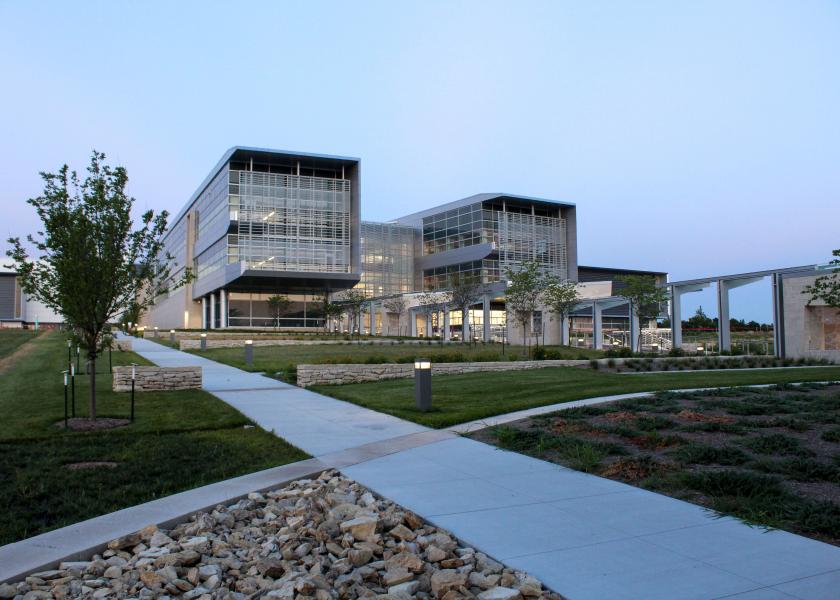CASNR Receives Grant to Develop Laboratorian Training Program for Animal Disease Research

More than a decade ago, national officials recognized a need for an enhanced research laboratory that could combat biological threats involving zoonotic and foreign animal diseases. The aging facility in New York state was inadequate to deal with the emerging threats.
So, in 2009, the National Bio and Agro-Defense Facility (NBAF), a biosafety level 4 research laboratory, was approved to be built in Manhattan, Kansas. As the $1.25 billion facility nears completion, greatly skilled researchers are needed to conduct studies in the highly secure containment system to ensure both safety and competence in the work being performed.
Texas Tech University and the College of Agricultural Sciences & Natural Resources (CASNR) are stepping up to that challenge, thanks to a sizeable grant from the U.S. Department of Agriculture’s (USDA) Animal and Plant Health Inspection Service (APHIS). Christy Bratcher, associate dean for research in CASNR, is leading the effort for the $500,000 grant, which will be used to train students with an interest in working at the NBAF with the specific technical skillset required to develop and implement USDA scientific programs at the facility.
“This is a unique opportunity to partner with a multitude of agencies in workforce development training of students to provide them with a skillset beyond what they are receiving in their traditional degree program,” Bratcher said. “I am excited to begin the selection process and begin working with highly motivated students.”
The NBAF Laboratorian Training Program (NLTP) housed at Texas Tech currently is recruiting students to apply for the first of two cohorts (2022 and 2023). The program has been funded for two years and will train 10 students per year.
Students in the program will learn the basics of high-containment facilities, laboratory procedures, animal handling and the promotion of safe work practices, including the use of personal protective equipment (PPE) in a high-containment environment.
The one-year training program will take place over three semesters. In the spring, students will enroll in an online course module through Texas Tech focused on understanding the high-containment environment, animal care and use and basic diagnostic procedures. Then, in the summer, there will be an eight-week, in-person training course at laboratories and animal facilities within the Texas Tech University System and the USDA Agricultural Research Services (ARS) facilities in Lubbock. The program will conclude in the fall with an online seminar series focused on analyzing and interpreting scientific data.
The program will be open to undergraduates in their junior or senior year at the time of application.
“The ARS’ Livestock Issues Research Unit (LIRU) is excited about this opportunity to collaborate with the Texas Tech College of Agricultural Sciences & Natural Resources in preparing students for potential careers working in the field of animal diseases,” said Jeff Carroll, research leader with the USDA-ARS. “There is a significant need for talented and well-trained individuals to work in this field, and LIRU has the capabilities to assist with the training and future success of these individuals.”
For more information, visit the NBAF Laboratorian Training Program website.







